
Neu! were a West German krautrock band formed in Düsseldorf in 1971 by Klaus Dinger and Michael Rother following their departure from Kraftwerk. The group's albums were produced by Conny Plank, who has been regarded as the group's "hidden member". They released three albums in their initial incarnation—Neu! (1972), Neu! 2 (1973), and Neu! 75 (1975)—before disbanding in 1975. They briefly reunited in the mid-1980s.
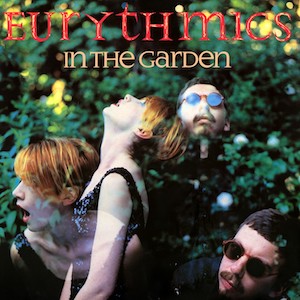
In the Garden is the debut studio album by the British new wave duo Eurythmics. It was released on 16 October 1981 by RCA Records.

Cluster were a German musical duo consisting of Hans-Joachim Roedelius and Dieter Moebius, formed in 1971 and associated with West Germany's krautrock and kosmische music scenes. Born from the earlier Berlin-based group Kluster, they relocated in 1971 into the countryside village of Forst, Lower Saxony, where they built a studio and collaborated with musicians such as Conny Plank, Brian Eno, and Michael Rother; with the latter, they formed the influential side-project Harmonia. After first disbanding in 1981, Cluster reunited several times: from 1989 to 1997, and from 2007 to 2010.

Harmonia was a West German musical "supergroup" formed in 1973 as a collaboration between members of two prominent krautrock bands: Cluster's Hans-Joachim Roedelius and Dieter Moebius joined by Neu! guitarist Michael Rother. Living and recording in the rural village of Forst, the trio released two albums—Musik von Harmonia (1974) and Deluxe (1975)—to limited sales before dissolving in 1976.

Michael Rother is a German experimental musician, best known for being a founding member of the influential bands Neu! and Harmonia, and an early member of the band Kraftwerk.
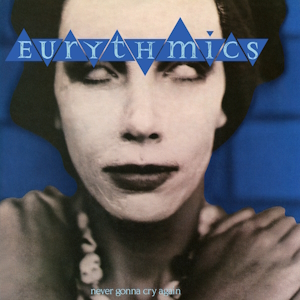
"Never Gonna Cry Again" is the debut single by the British new wave duo Eurythmics, released in 1981. It was taken from their debut album In the Garden.

Out of Reach is the ninth studio album by the German krautrock band Can, released as an LP in 1978 on Harvest Records. It is their tenth official studio album, discounting compilations such as Unlimited Edition.

Klaus Dinger was a German musician and songwriter most famous for his contributions to the seminal krautrock band Neu!. He was also the guitarist and chief songwriter of new wave group La Düsseldorf and briefly the percussionist of Kraftwerk.

Radio is the first compilation album by the German solo artist Michael Rother. It was released in October 1993.

Musik von Harmonia is the debut album from the influential German krautrock group Harmonia, released in January 1974 by Brain Records. Formed by the addition of Neu! guitarist Michael Rother to Cluster, they recorded the album from June to November 1973 in Cluster's Forst recording studio. It was self-produced by the group using a primitive mixer and three tape recorders.

Deluxe is the second album from the West German krautrock group Harmonia, consisting of Neu! guitarist Michael Rother and the Cluster duo of Hans-Joachim Roedelius and Dieter Moebius. It was recorded in June 1975 in Harmonia's studio in Forst, Germany. It was first released on the Brain Records label in 1975.
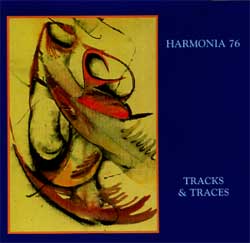
Tracks and Traces is a collaborative album by German kosmische supergroup Harmonia and British musician Brian Eno, initially credited to Harmonia 76. Eno joined the group at Harmonia's studio in Forst, Germany for the September 1976 recording sessions.
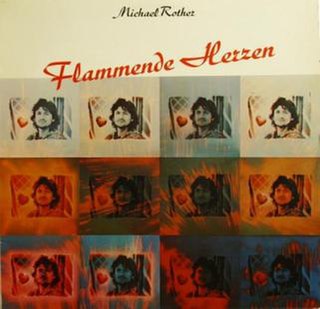
Flammende Herzen is the debut studio album by the German solo artist Michael Rother. It was released in 1977 and includes the single "Flammende Herzen" b/w "Karussell". The music was used the following year to soundtrack Flaming Hearts. It was Rother's first solo venture after having recorded five albums prior as a member of Neu! with Klaus Dinger and Harmonia with Hans-Joachim Roedelius and Dieter Moebius.

Katzenmusik is the third studio album by the German solo artist Michael Rother. It was released in 1979 and includes the single "Katzenmusik 9" b/w "Katzenmusik 2".
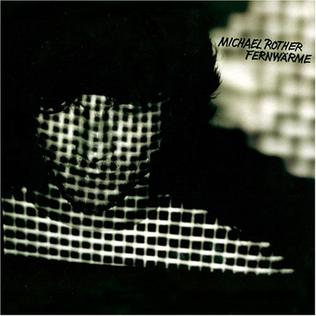
Fernwärme is the fourth studio album by the German solo artist Michael Rother. It was released in 1982 and includes the singles "Silberstreif" b/w "Erlkönig" and "Hohe Luft" b/w "Fortuna".

Lust is the fifth studio album by the German solo artist Michael Rother. It was released in 1983 and includes the single "Palmengarten" b/w "Cascadia".

Süßherz und Tiefenschärfe is the sixth studio album by the German solo artist Michael Rother. It was released in 1985 and includes the singles "Süssherz" b/w "Maus-Mann-Motiv Nr. 4" and "Glitzerglanz" b/w "Rapido".

Traumreisen is the seventh studio album by the German solo artist Michael Rother. It was released in 1987 and includes the single "Lichtermeer" b/w "Happy-End".

Esperanza is the eighth studio album by the German solo artist Michael Rother. It was released on 11 March 1996. Excepting 1993's compilation album Radio, the studio album was Rother's first since 1987 and his sole full release of material in the 1990s.
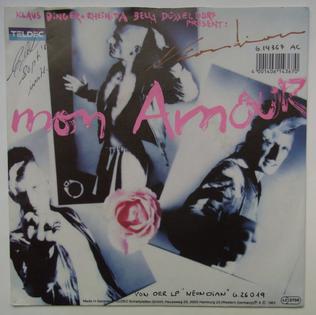
Mon Amour is an instrumental tune and single by Klaus Dinger + Rheinita Bella Düsseldorf, released in 1985 to coincide with the album Néondian. In reality, Néondian was a solo album for Klaus Dinger, and Mon Amour in effect his debut solo single. It was also the first Dinger recording to be released on CD, and the last single Dinger would release in his lifetime.




















